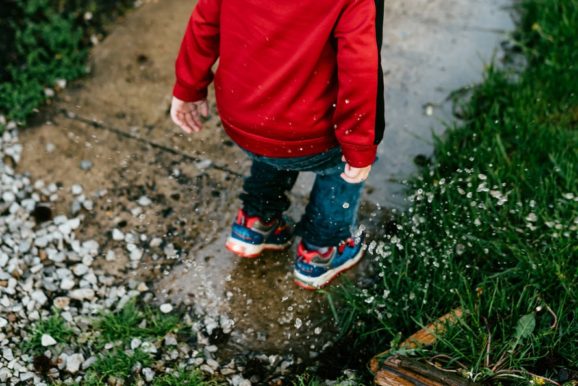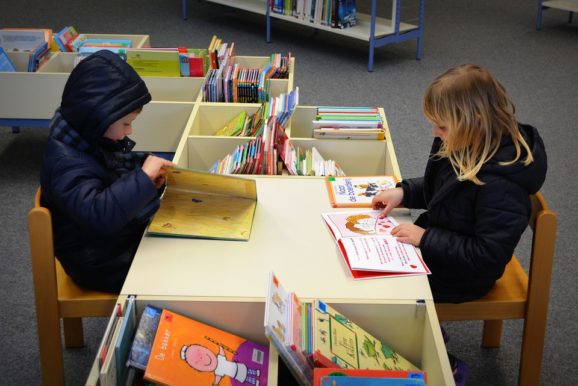You might think that when students are sitting quietly and looking at you, you have their undivided attention. Let me tell you something you’ve probably figured out already. Students can be looking dead in your face and not paying a bit of attention to what you are saying. Continue Reading…
Have you noticed that when you smell a particular odor, memories come flooding back? Maybe it’s a scent from your childhood that brings to mind your mother cooking one of your favorite foods in the family kitchen. Maybe it’s a fragrance that a particular person wears, and when you smell it, all of the memories of your experiences with that person are recalled. Continue Reading…
I simply cannot teach or live without music! Neither should you. Music gets each day off to an encouraging start, leads students calmly through transition times, minimizes classroom disruptions, and gives all who hear it a sense of well-being. Continue Reading…
A school system was in the process of building five new schools to house their increasing student population. Having read the research on the detrimental effects of fluorescent lighting, I shared with the architects rationales for including additional windows or a different type of lighting in the construction of these new buildings. The experts thanked me for my input but proceeded to include fluorescent lighting in plans for each of the five new edifices. Continue Reading…
You may have noticed that in almost every school where students change classes, there is a group of students who will be perfectly behaved in one classroom and out of control in another. Why does this happen? It may have to do with teacher expectations. Continue Reading…
Think back to when you finished high school. No doubt you can recall the names of many students in your senior class who did not have the grades or SAT scores to place in the top 25th or even the top 50th percentile of graduating seniors. Continue Reading…
There once was a man named North. His last name was America.
He fell in love with a beautiful woman named South. They got married and she took his name so she became South America. They honeymooned in Europe. Continue Reading…
“Did you hear about the mathematician who’s afraid of negative numbers? He’ll stop at nothing to avoid them.”
If the math pun above made you laugh or even smile a little, it put your brain in a more positive state. Research tells us that jokes, riddles, celebrations, and other forms of positive interaction not only create a positive learning environment but may also facilitate learning itself. Continue Reading…
Thousands of years of history support one major concept: When students are actively engaged in experiences with content, they stand a much better chance of learning and remembering what we want them to know. Continue Reading…
There appears to be a recent movement among some parents that childhood should be a carefree and joyful time and that their children are happier when all rules and responsibilities are taken away. Nothing could be further from the truth. Continue Reading…
Remember when you were little and you used to play outside for hours on end? Or maybe you’d be inside in a playroom pretending to be a teacher or an astronaut or a princess? Or you would be enjoying watching videos for babies with your parent? When children engage in play, they’re do much more than entertaining themselves. They’re learning and growing; they’re turning into well-adjusted human beings. Continue Reading…
I once heard a brain consultant by the name of Fritz Mengert say that if he had to choose between putting his grandchild in a day care center where teachers rock, hold, and hug children or one where academics are emphasized over all else, the decision would not be a difficult one. Continue Reading…
“The more that you read, the more things you will know. The more you learn, the more places you’ll go.”— Dr. Seuss
A woman once asked Albert Einstein how she could make her son more intelligent. His response? Read him fairy tales. Continue Reading…
Success in school depends on many factors for students, but one of the most important areas that can be overlooked is proper physical health practices that encourage healthy brain development. The brain is a demanding organ. It comprises only 2% of the total body weight, but consumes 8 to 10 times more oxygen and glucose than any other organ in the body. This is why we must do everything we can to protect this vital part of our body. Sadly, some people have had the health of their brains compromised as a consequence of incurring an injury. Luckily, brain injury lawyers try their best to seek justice in a legal sense retrospectively. If our bodies don’t receive the proper nutrition they need, the brain is the first to suffer. Continue Reading…
Whether you are a teacher delivering instructions to students or a student attempting to retain information for a class, there are 20 cross-curricular strategies that take advantage of the way all brains learn best. They are as follows:
According to brain research, there are simple things you can do to create a calming, stress-relieving environment for you, your family, and even students in a classroom.
Relationships are everything! Familial and friend relationships, workplace relationships, and spiritual relationships all make a tremendous difference in our lives.
When you look at the first chapter in my best-selling book on classroom management, Shouting Won’t Grow Dendrites: 20 Detours Around the Danger Zones, you will find that the first chapter is titled, “Develop a Relationship with Each Student.” Continue Reading…
When students cannot see the purpose in a teacher’s lesson, they will often ask the question, “Why do we have to learn this?” This question makes perfect sense, since the purpose of the brain was never to make straight As or score high on a standardized test. The purpose of the brain is survival in the real world. So the question becomes, “What does this lesson have to do with my survival?”
Stephen Covey, author of 7 Habits of Highly Effective People, stated the following: Everything happens twice – once in the mind and once in reality. The once in the mind could be called visualization. Visualization has been defined as the use of mental images to influence bodily processes and is one of 20 brain-based strategies that enables human beings to remember what they are learning.
If you believe you can or you believe you can’t, you’re actually right!
This thing we call confidence is often difficult for a parent to see in a child or for a teacher to see in a student. We can even have a hard time seeing it within ourselves. But it is not difficult to observe in sports, so I would like to use a sports analogy to explain the concept.
Continue Reading…



















